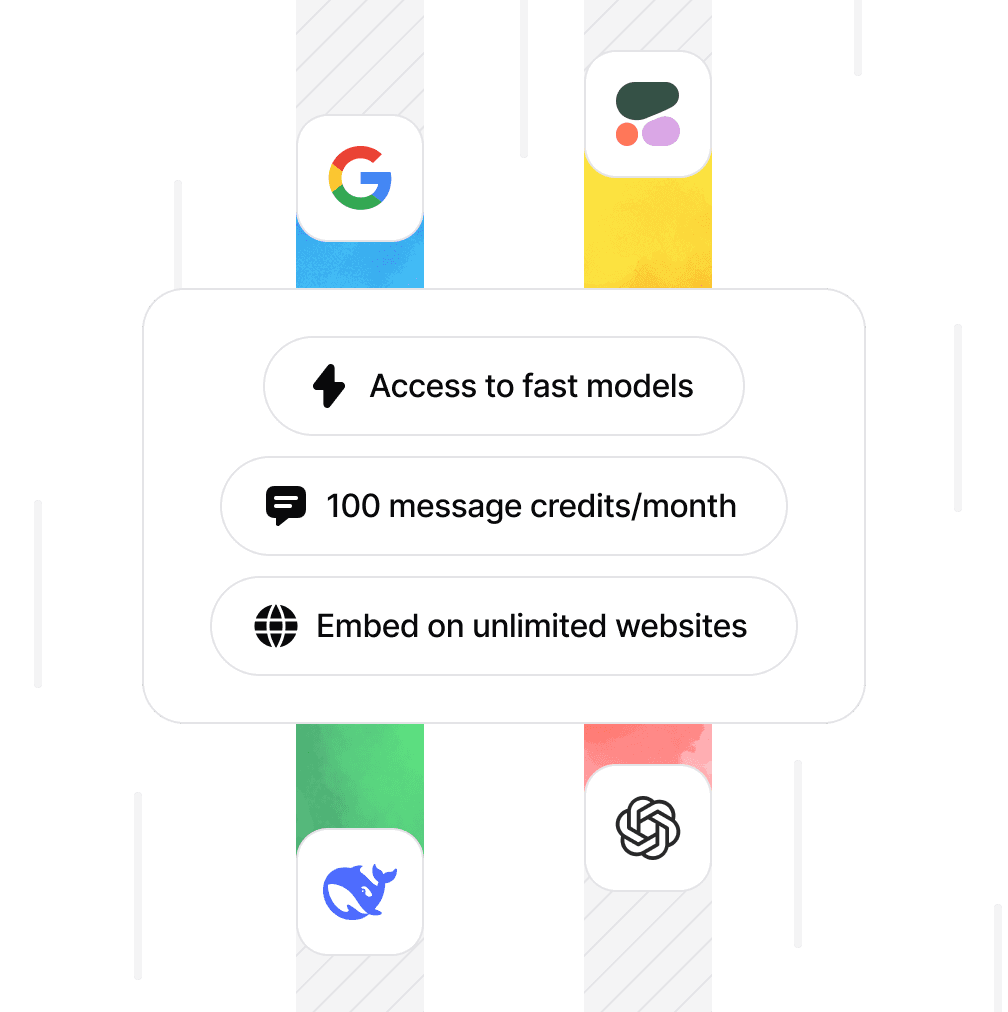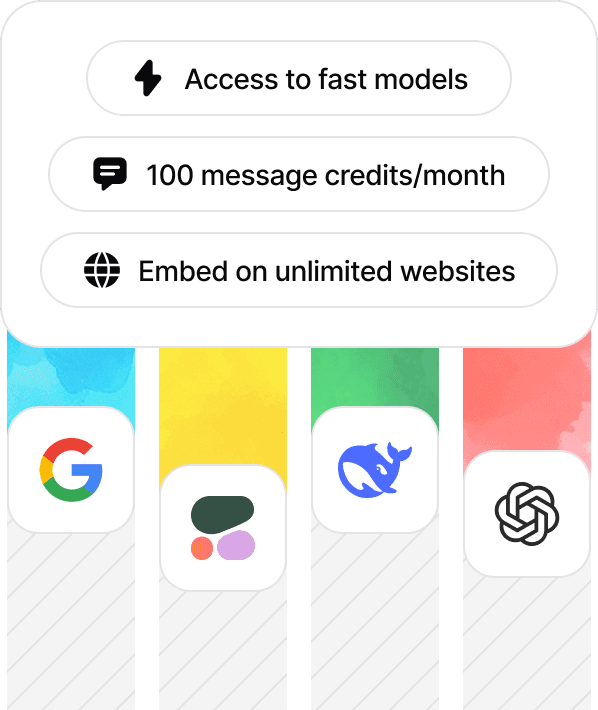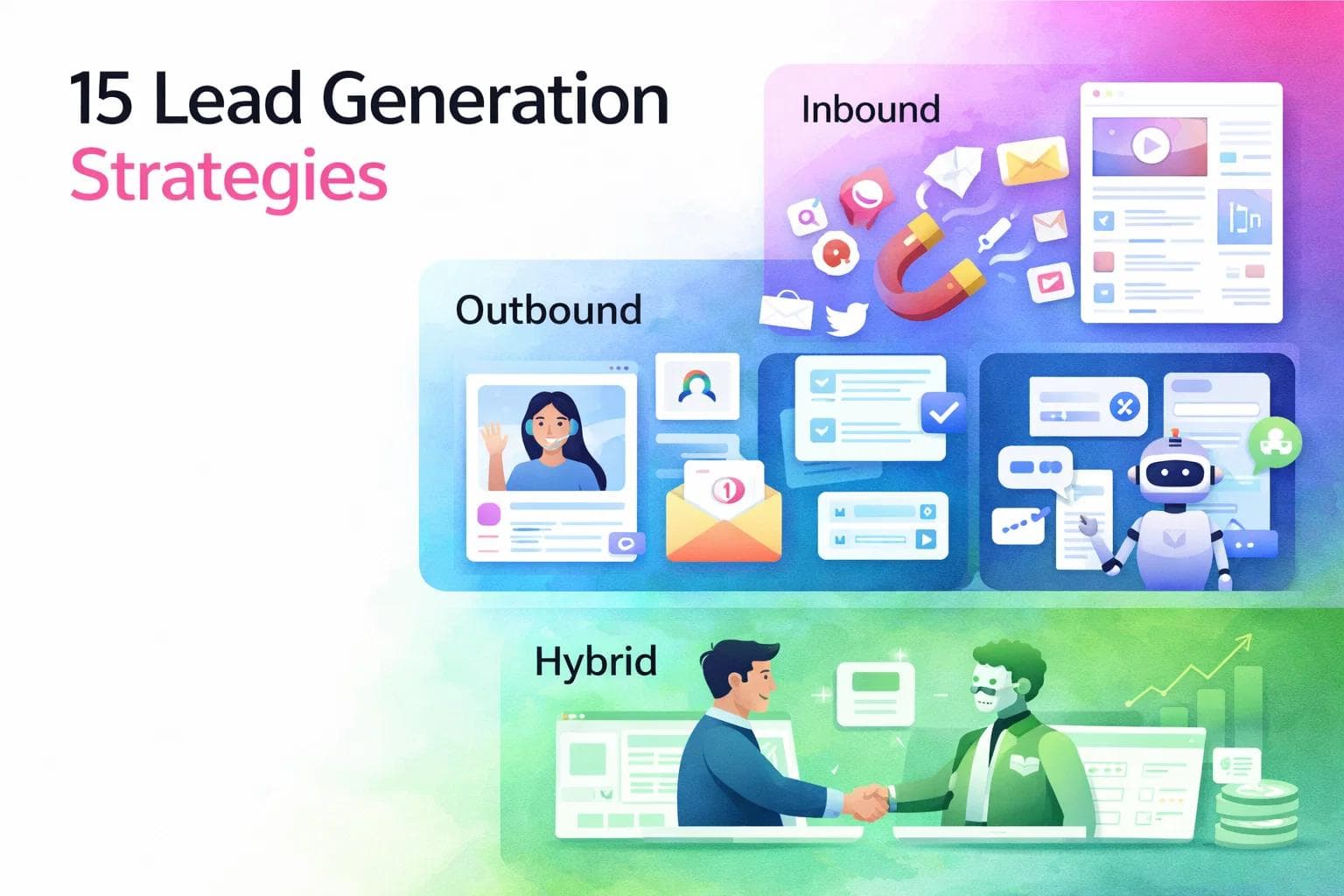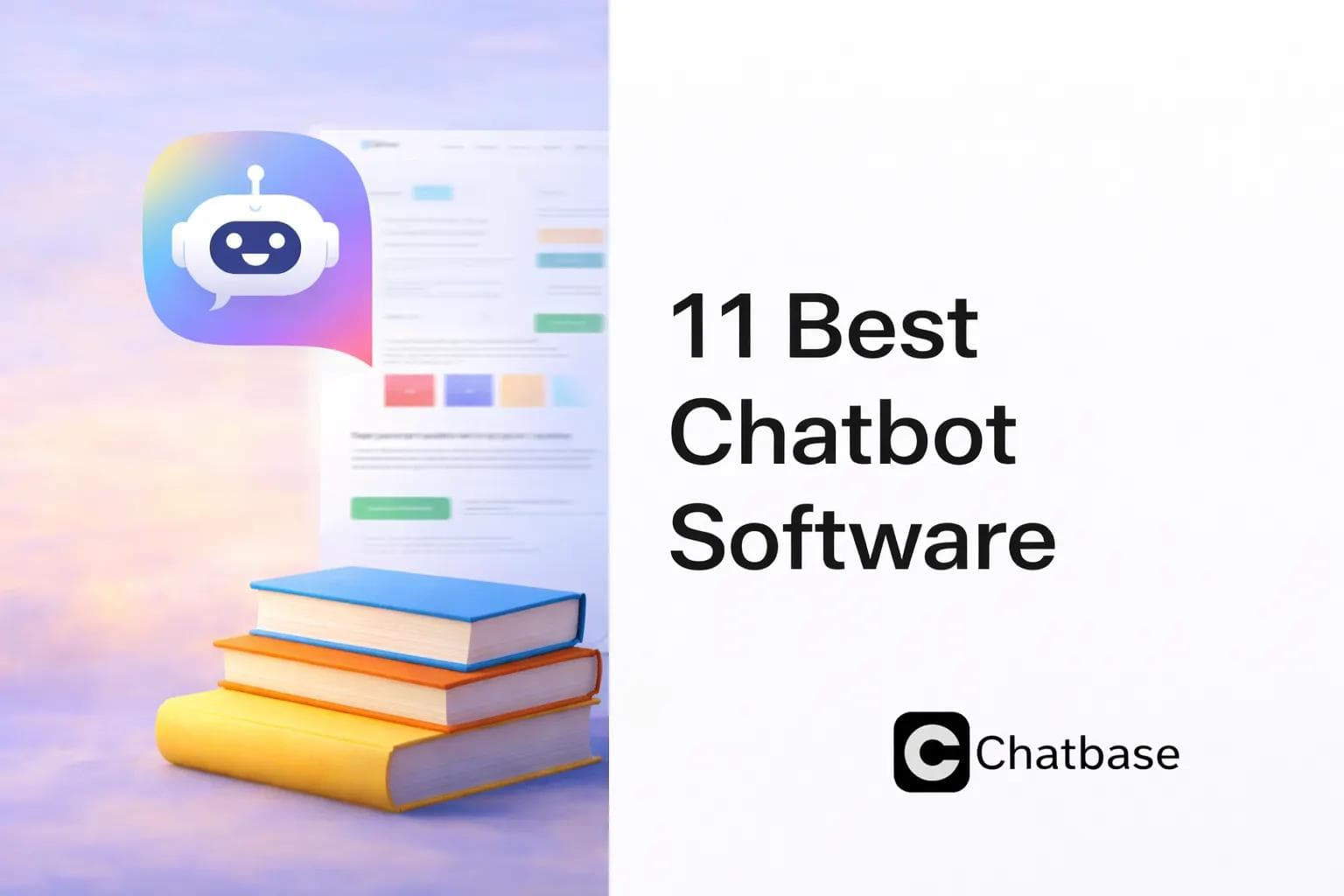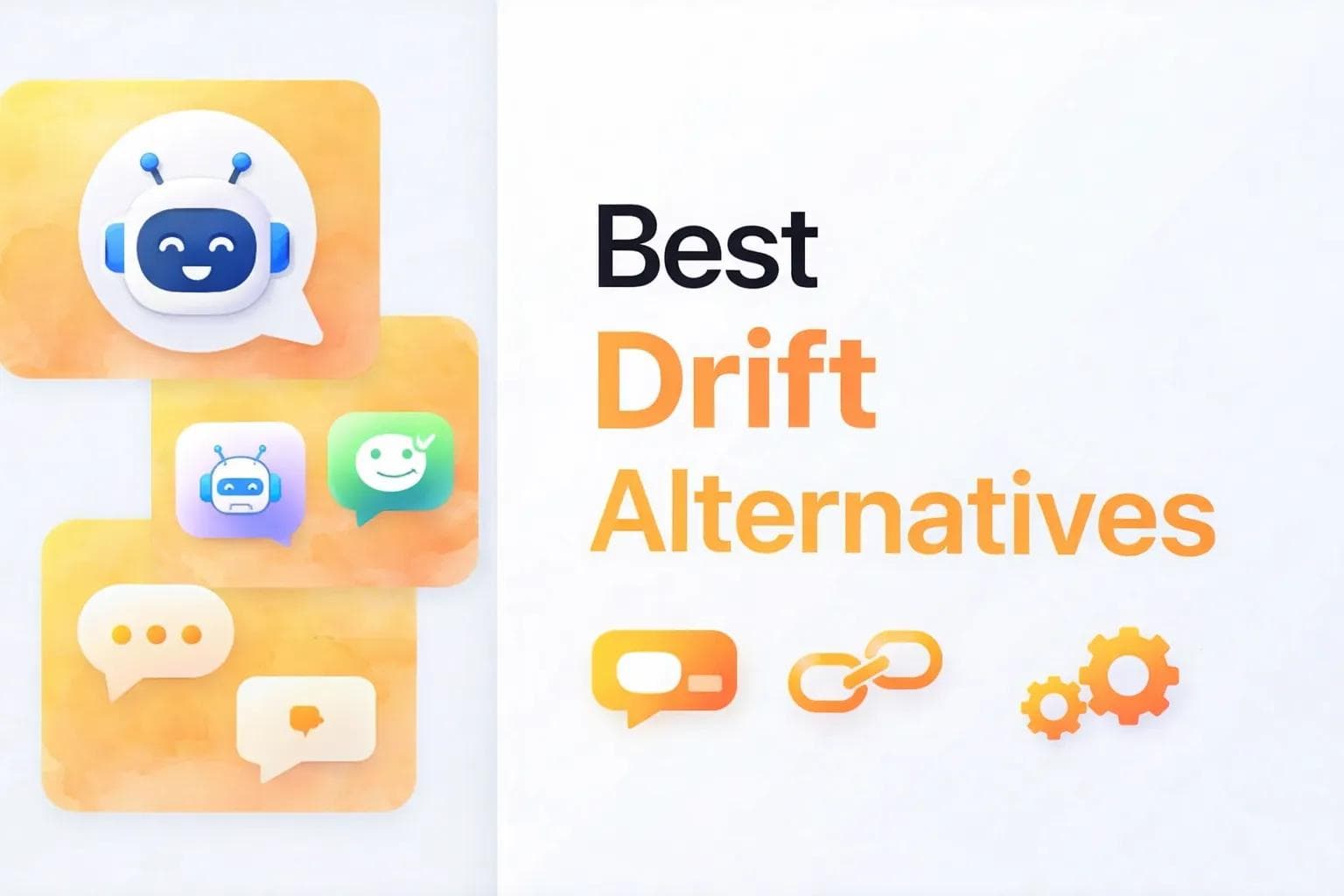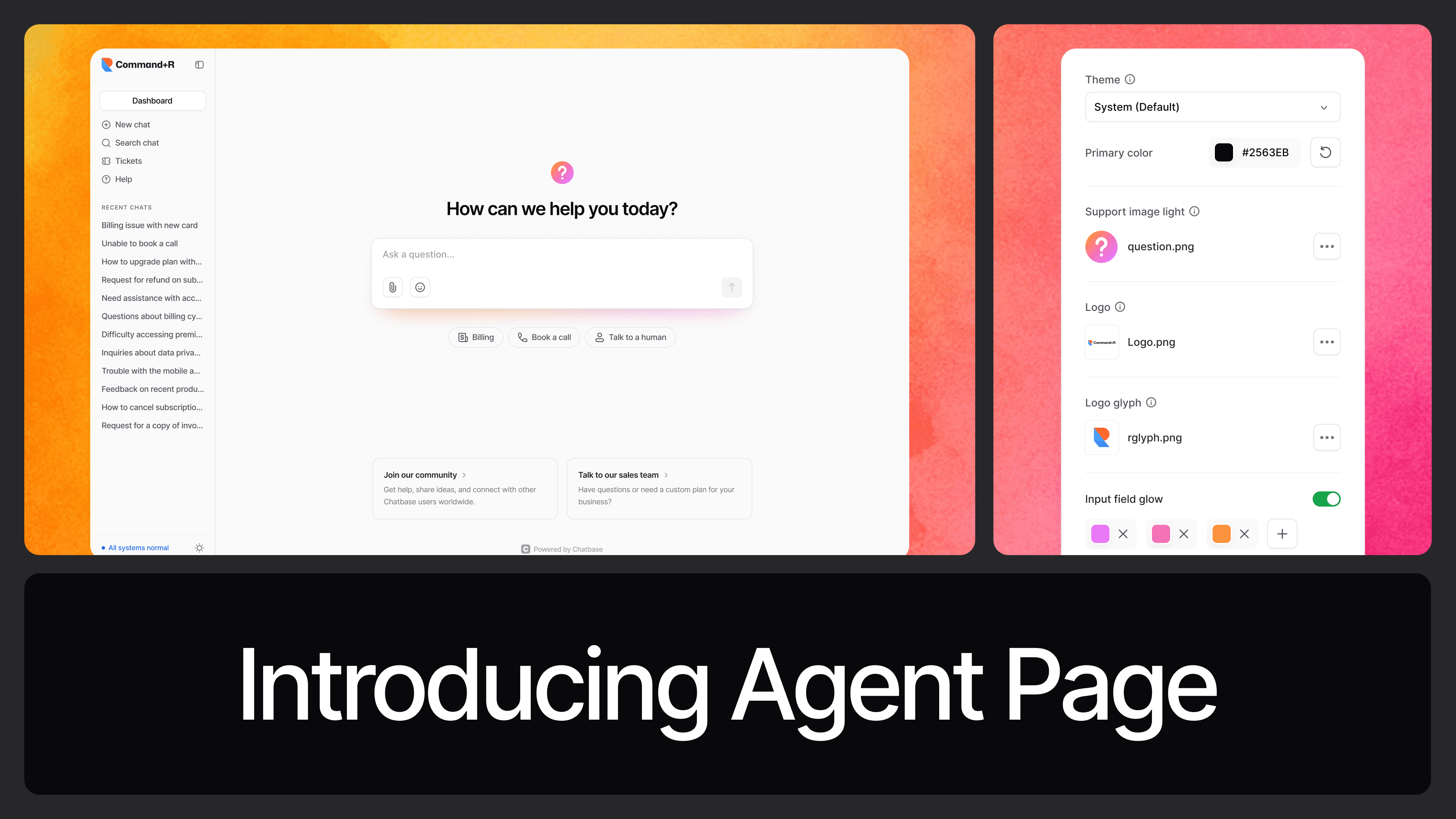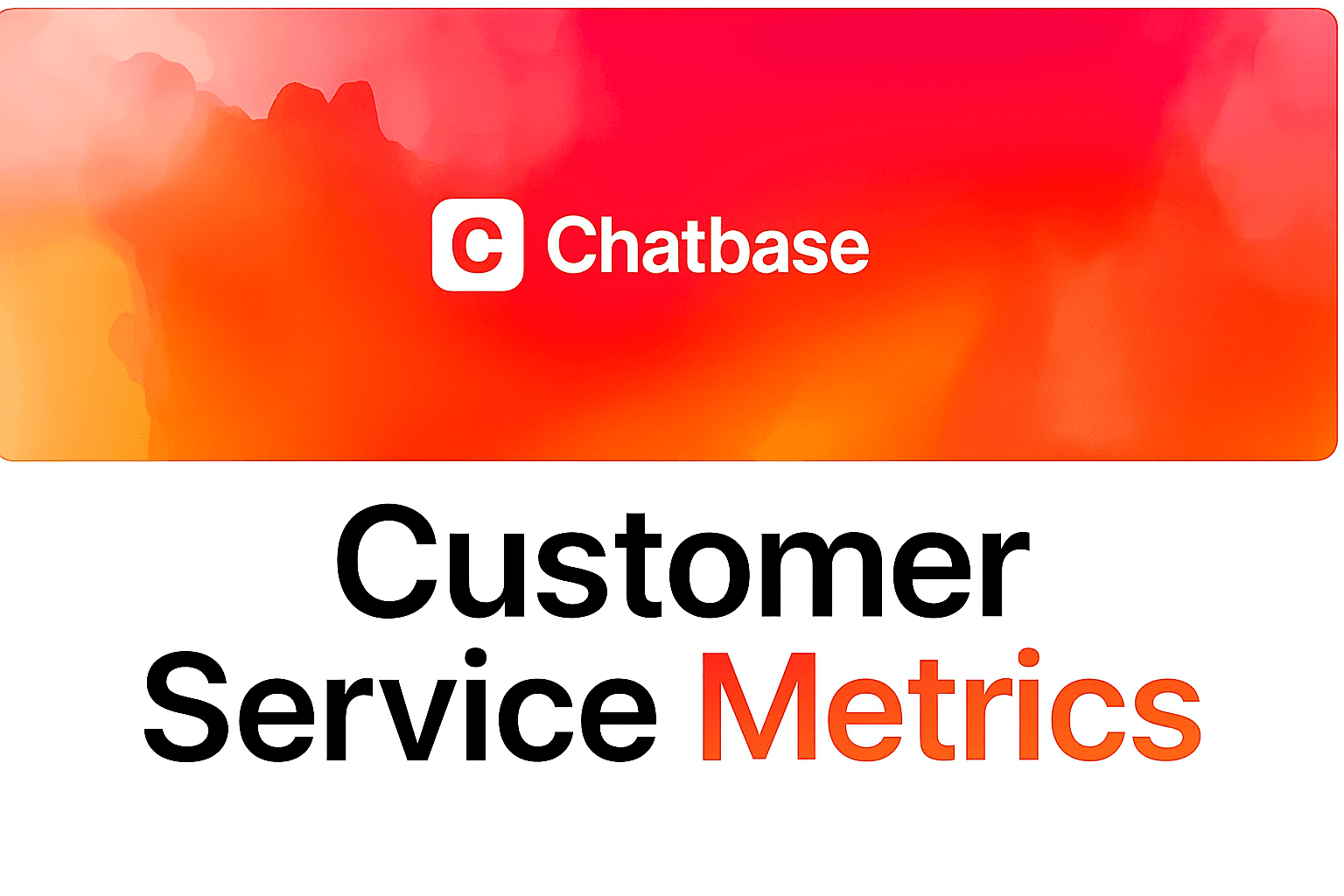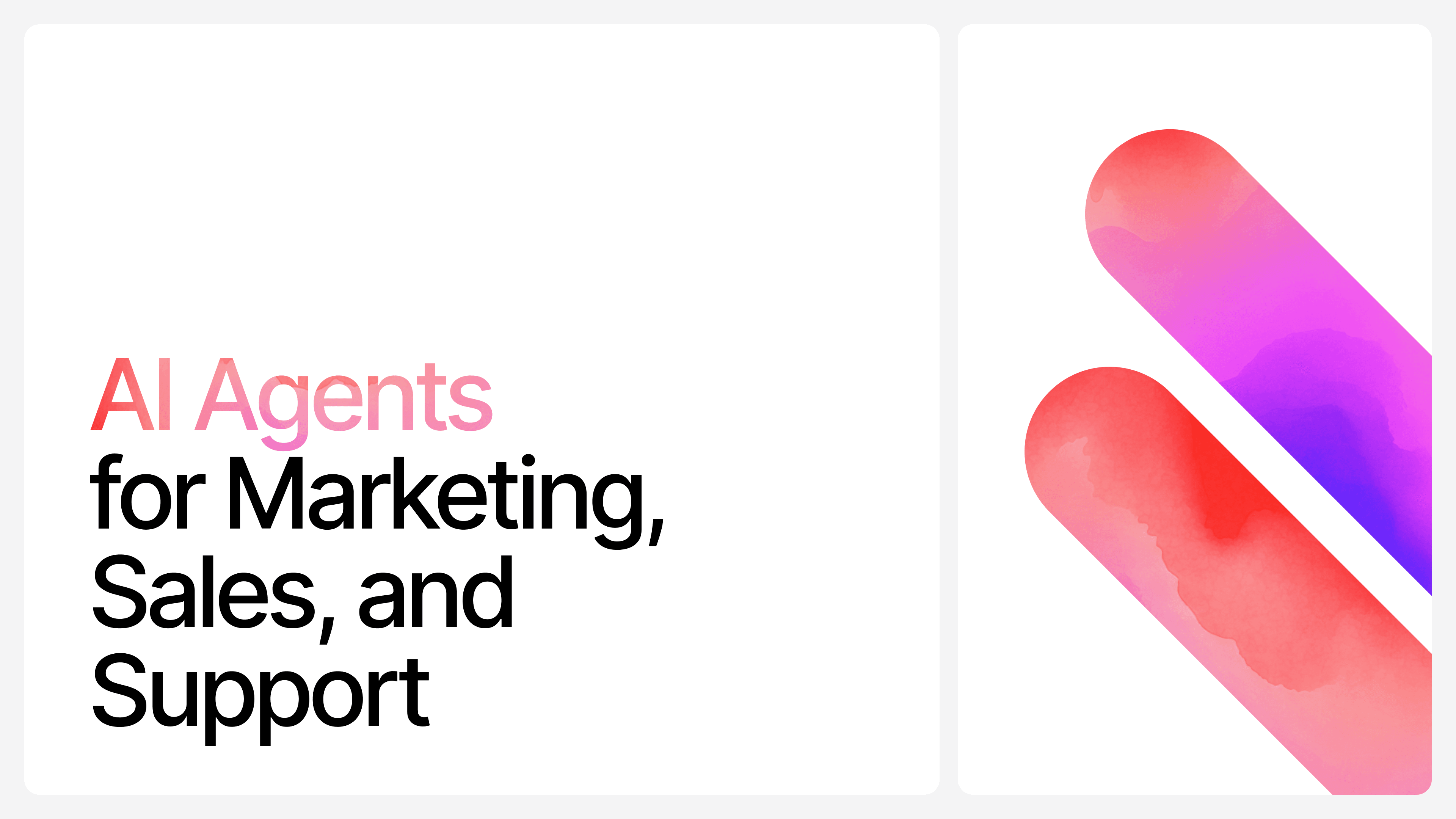Does ChatGPT Save Your Data? We checked!
Ilias Ism
Jan 21, 2025
7 min read
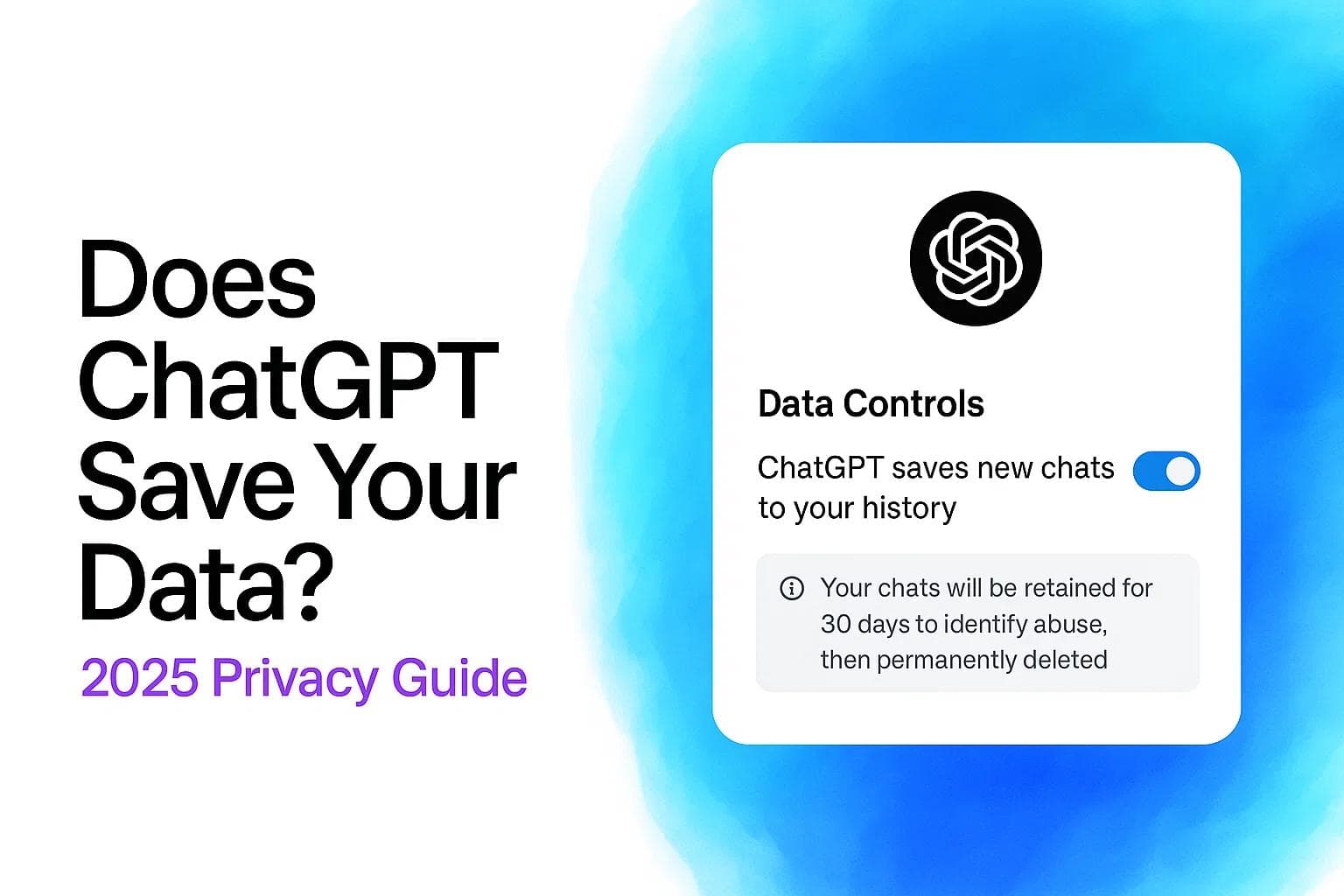
Summary by Chatbase AI
Yes, ChatGPT saves what you type. It’s used to train the AI unless you opt out. You can turn on temporary chats (gone in 30 days) or delete your account. Still, don’t share anything sensitive, breaches can happen.
Yes, ChatGPT saves your data. Here's what you need to know
When you use ChatGPT, it keeps everything you type. Every question, every conversation, every file you upload - it's all stored.
OpenAI (the company that owns ChatGPT) uses this data to make their AI better. They also share it with their partners and can give it to the government if asked.
This matters because you might be sharing personal information without realizing it.
What data does ChatGPT collect?
![[object Object]](/_next/image?url=https%3A%2F%2Fcdn.sanity.io%2Fimages%2Fi6kpkyc7%2Fprod-dataset%2F047dd082f28a456307ca87f1c7e11cc6f003f0a6-882x1190.png&w=3840&q=75)
According to the privacy policy, ChatGPT collects two types of data:
- User-provided data: This includes everything you type into the chatbot – your prompts, questions, responses, and any files you upload. Everything from short questions to sensitive information like personal details, business data, or even source code.
- System-generated data: This is all metadata like timestamps, usage statistics, device information (device type, operating system, browser), IP address, approximate location, and payment details (if applicable).
So ChatGPT is collecting:
- Account information: Your name, email address, phone number, and contact details.
- Chat conversations: All your interactions with ChatGPT are stored on OpenAI's servers in the USA .
- Geolocation data: Your approximate location when using the service.
- Network activity: Information about your interactions with the platform.
- Commercial information: Transaction history, if applicable.
- Log data: Technical data like your IP address and browser type.
- Cookies: Data collected through cookies to track usage patterns.
How does ChatGPT use your data?
OpenAI saves your chats and may use them to train future models like GPT-4o and GPT-5. This process, called "fine-tuning", sometimes involves human reviewers looking at parts of conversations.
Your data isn’t sold for marketing, but it can be shared with partners, law enforcement, or government agencies if required.
The bottom line: don’t type in anything private or sensitive that you wouldn’t want reviewed or exposed.
How to stop ChatGPT from keeping your data
Thankfully, OpenAI offers some control over how your data is used:
1. Opt-Out of Model Training
![[object Object]](/_next/image?url=https%3A%2F%2Fcdn.sanity.io%2Fimages%2Fi6kpkyc7%2Fprod-dataset%2F1d12c65e4a7bfab18028dbc40e14a392c1982cbc-931x761.png&w=3840&q=75)
You can prevent your chats from being used to train future models by adjusting your settings within ChatGPT.
Navigate to Settings > Data Controls and disable the "Improve the model for everyone" toggle.
Note that this will also disable your chat history.
For Enterprise accounts, the default is that data is not used for training purposes.
2. Temporary chats
![[object Object]](/_next/image?url=https%3A%2F%2Fcdn.sanity.io%2Fimages%2Fi6kpkyc7%2Fprod-dataset%2Fe3a1a5089827bb534a677afce197e6ef32dbe237-764x579.png&w=3840&q=75)
OpenAI offers "temporary chats" that are automatically deleted within 30 days and are not used for training.
To enable this, open the dropdown menu in the top left corner and toggle on the "Temporary chat" option.
Note that with this option, ChatGPT will not remember any previous interactions.
3. Privacy Portal
![[object Object]](/_next/image?url=https%3A%2F%2Fcdn.sanity.io%2Fimages%2Fi6kpkyc7%2Fprod-dataset%2F358bf0f2dae46e03da69d90509699aae05e58231-546x205.png&w=3840&q=75)
OpenAI's privacy portal allows you to request a copy of your data, request removal of personal data from training sets, and delete your account (which deletes all associated data).
Privacy Concerns
![[object Object]](/_next/image?url=https%3A%2F%2Fcdn.sanity.io%2Fimages%2Fi6kpkyc7%2Fprod-dataset%2Ff3ffa07ff7237ddf8011c9c6d56c64f4da85bd34-2752x1536.jpg&w=3840&q=75)
Several privacy concerns arise from ChatGPT's data collection practices:
- Data Breaches: Storing vast amounts of user data creates a tempting target for cybercriminals. OpenAI has already experienced data leaks, exposing user information.
- Resurfacing of Information: There's a risk that information you provide could reappear in other users' conversations, as highlighted by The New York Times' lawsuit against OpenAI for reproducing copyrighted material.
- Vulnerabilities: Past vulnerabilities have allowed researchers to extract training data, including personal information, from ChatGPT.
- Government Access: OpenAI's privacy policy allows for data transfer to government entities, raising concerns for some users.
- Ethical Concerns: The use of user data for training without explicit consent raises ethical questions about data ownership and privacy.
Is It Safe for Companies to Use ChatGPT?
It depends, ChatGPT can be valuable for tasks like generating Excel formulas or paraphrasing text.
However, inputting sensitive company data or PII into ChatGPT poses risks.
Many organizations, including major banks and tech companies like Apple and Samsung, have banned or restricted its use due to these privacy concerns.
Consider a Dedicated Solution
![[object Object]](/_next/image?url=https%3A%2F%2Fcdn.sanity.io%2Fimages%2Fi6kpkyc7%2Fprod-dataset%2F3357ec48a49b9900d6705043ed9110972c83f4b1-1188x691.png&w=3840&q=75)
Instead of relying on the standard ChatGPT, businesses seeking more control over data privacy should explore AI chatbot platforms like Chatbase.
Chatbase allows you to build and deploy AI chatbots while maintaining greater control over your data and security.
Unlike general-purpose tools, Chatbase offers features designed for business use, potentially mitigating the risks associated with standard ChatGPT.
Conclusion
ChatGPT's ability to save and utilize user data is central to its functionality and improvement.
While OpenAI offers some controls, users should be aware of the potential privacy implications and take steps to protect their information.
By understanding how ChatGPT handles data and utilizing the available privacy options, you can make more informed decisions about using this powerful tool.
Remember, exercising caution and staying informed are crucial in the age of AI.
Share this article:
